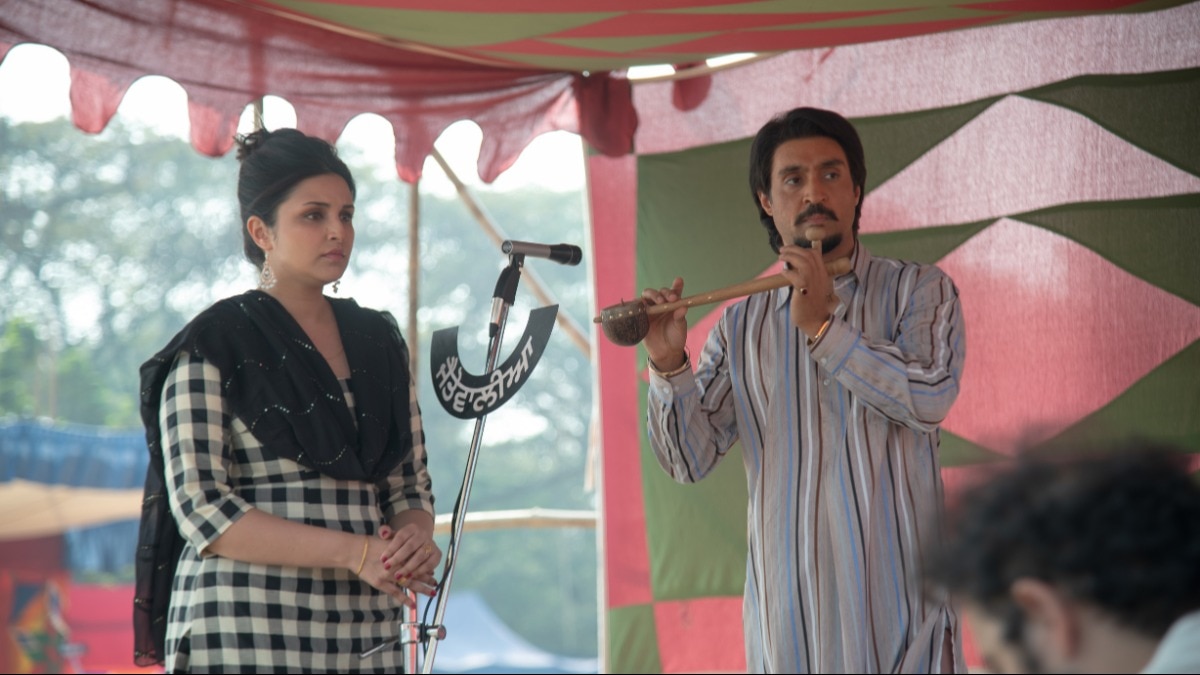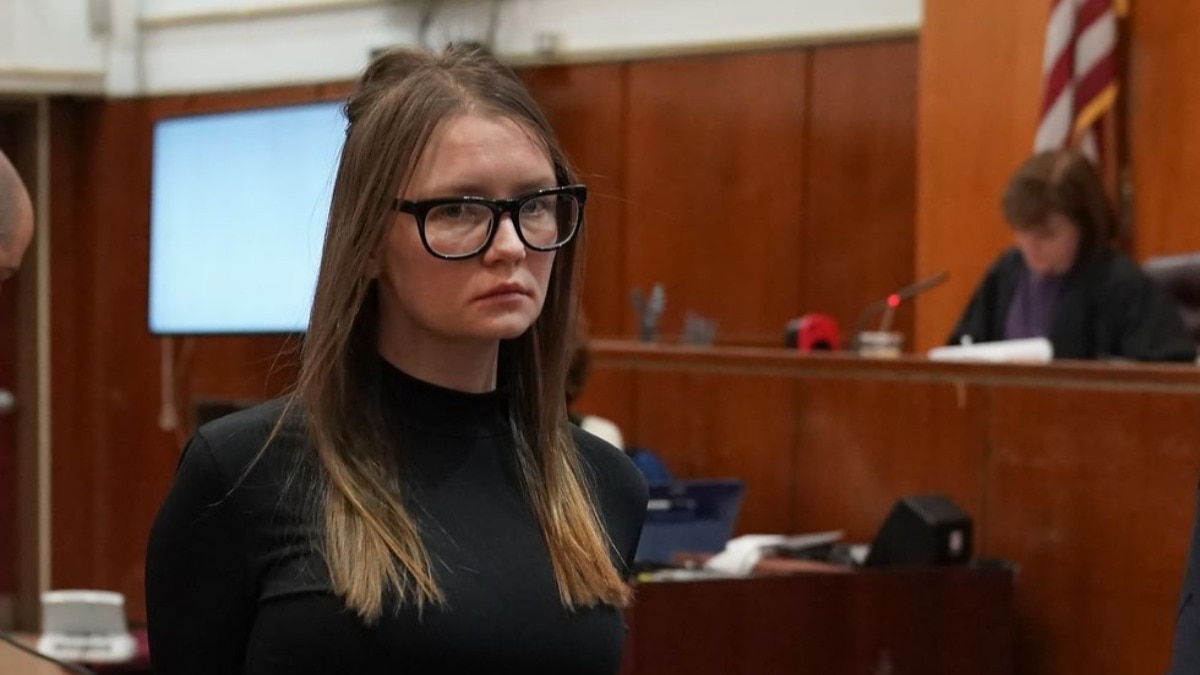
Inside the author's mind: Behind the scenes of the making of a novel
Monica Ali, the acclaimed author of 'Brick Lane', speaks about prejudice in publishing, her much anticipated new tale of two families in contemporary Britain, and why it has taken her 10 years to write.


In the Ghorami household, sex was never mentioned,’ reads the first line of Monica Ali’s new novel Love Marriage. We find ourselves in north London, 2016, where two very different families are about to have dinner together to celebrate the engagement of their son and daughter, who are both junior doctors. Yasmin is taking her loving, traditional Bengali parents to meet her fiancé Jack’s mother, a feminist firebrand and provocative media figure, who is, in turn, majestic and monstrous in her pursuit of a multi-cultural, liberal metropolitan existence.

So begins a big, magnificent story chronicling a revelatory year in the life of two lovers, two families, and two cultures. "It’s about who we are, and how we love in modern Britain," a twinkly-eyed, elegant Ali says when we meet, wearing a sculptural cotton dress from the Friday Sari Project, her hair loosely tied back. She is reflective and thoughtful, with a ready, gravelly laugh. "It looks at what love and marriage mean to different cultures, different generations, but also at shame and guilt, betrayal and truth, and maybe makes us think about our prejudices about race, class, feminism and identity.’ She pauses. ‘But most importantly, I hope that it’s a good, old-fashioned, compulsive read, and an entertaining story!" I’m not alone in believing she has achieved this—the book has already been snapped up to be adapted into a BBC television series after a hotly contested auction.
Born in Dhaka, in what is now Bangladesh, to a Bengali father and an English mother, Ali moved with her family to Bolton when she was three; she spent a lot of her childhood in the public library—books provided an escape from a tense household, where she was often on the receiving end of her father’s unpredictable, explosive temper. She went on to study PPE (politics, philosophy, and economics) at Oxford University. Given that she later chose to work in publishing, I wonder why she didn’t study literature? "I felt that my relationship with novels was my own…and I wanted to feed my mind in other ways, too: learning how society and politics work, how power functions, looking at subjects from existential questions and moral philosophy to the economy of the labour market," she says. "That all informed me as a novelist."
After stints in publicity at the independent publisher Verso and copywriting at a branding agency, Ali, who had two children under two at the time, wrote her first novel Brick Lane in her thirties. "I’d been writing short stories during the night, when I couldn’t get back to sleep after being up with one or both of them. And I had this idea for a novel," she remembers. "My maternal grandfather died and the day after the funeral, I just sat down and began. We’re not in this world for ever, so we can’t keep putting things off." Snatching any spare moments, Ali would write when the children were in bed, often coming up with lines of dialogue when pushing the buggy.

The story of a 17-year-old Bangladeshi girl, who marries a man 25 years her senior and relocates to London, was met with overnight acclaim, thrusting an unprepared Ali into the literary spotlight. Granta named her one of its Best Young British Novelists before the book was even published. The Sunday Times stated: "It may be Ali’s first novel, but it is written with a wisdom and skill that few authors achieve in a lifetime." It was Booker-shortlisted and adapted into a major film. Since then, Ali has written three novels, the latest of which came out in 2011.
The reason for the 10-year hiatus is that Ali had a severe crisis of confidence. After Brick Lane, her next two books—Alentejo Blue, a collection of stories set in and around a Portuguese village, and Untold Story, in which Ali imagines what Princess Diana might have turned her life into, had she not died—received lukewarm receptions. Having lauded her as "the voice of multicultural Britain," critics seemed bewildered by Ali’s change of direction; The New York Times billed Untold Story ‘a curious marriage of author and subject." "People have quite specific expectations of voices of colour," she says now. "And they tend to involve representing your own identity and 'community'. If you don’t conform, people think, 'This can’t be authentic.' I felt I’d been naive—I had thought I’d had the same creative freedoms as a white guy. Why not? I hadn’t understood that I wasn’t supposed to write whatever I wanted." At the same time, she was resisting misinformed perceptions that she, as a non-white female author, was on the receiving end of "positive discrimination"—and that this was why her books were getting published.
If Brick Lane’s sudden success had left her unmoored, these criticisms burned her fingers further; Ali withdrew from publishing, avoided literary festivals, and stopped writing. She couldn’t bring herself to go into bookshops. Eventually, she made her way back to her desk and today—after having therapy and giving the issue further analysis—she is philosophical: no longer depressed or ashamed, but amused and outraged. "I’m not one thing or the other—my mother’s white, my father’s Bengali—and anyway, I write to walk in other people’s shoes," she says. "To expect people to only pursue artistic endeavour to represent their own experience is problematic—it says that they are not endowed with intelligence, imagination, and creativity." Roxane Gay’s eloquent words on the matter are dear to Ali—particularly the line that "we all contain multitudes."

This belief that every person comprises limitless pluralities informs the vividly drawn characters Ali creates: in Love Marriage, the ensemble all contain contradictions. They variously surprise, embarrass, horrify, and impress the reader right the way through the book. And yet, thanks to Ali’s big-hearted, wry, and tender narrative voice, by the final page it feels like something of a celebration of humanity and all our glorious inconsistencies—if only we can learn to acknowledge them. As we follow the Sangster and Ghorami families over the course of a year, the characters come up against questions about racism, feminism, covert incest, Brexit, sexual addiction, violence, privilege, identity, and the NHS.
The book seems to me a state-of-the-nation novel in the very best sense, because it is, first and foremost, a terrific story delivered with a light touch: with dialogue that can turn a situation on a sixpence and exquisite descriptions; thus we learn that when thinking a problem over, Mr Ghorami takes off his bifocals and folds them up, ‘as if the truth could only be seen by looking in rather than out’. The narrative is lit with tension and pace that makes the expansive story, told over 500 pages, read like a book half that length. Ali’s deft comic touch appears throughout—she has a knack for affectionately making our personal foibles and failings funny, and for observing the absurd. There are some extremely moving moments, and splendid cinematic scenes of high comedy.
It therefore isn’t a surprise to learn that the author loves Evelyn Waugh, particularly his sense of the ludicrous and capacity for exposing false attitudes, and VS Naipaul’s A House for Mr Biswas—"It’s the best tragicomedy of all time." She rereads Tolstoy whenever she’s stuck or in-between books, and Jane Austen has been an enormous influence. "She wrote about families, love, engagement, and marriage, and through that supposedly narrow domestic prism, we learn a lot about the world—money, power relations, women, social class, and cultural issues," Ali says. "Love Marriage is inspired by Austen in many ways—obviously it is set in a completely different landscape, but the journey of self-discovery that my characters go on echoes that of (Pride and Prejudice’s) Elizabeth Bennet—a wonderful heroine, possibly the best ever."
Towards the end of the 1813 classic, with dawning realisation, Elizabeth recognises that she, having "prided myself on my discernment," has, in fact, "been blind, partial, prejudiced, absurd." In today’s Britain, when grappling with finding our place in the world, we don’t often think to turn to Regency romances for guidance; but it is natural to Ali, because the most profound human quandaries are perennial, and not contained by geographical or temporal borders.
She is slightly apprehensive about having a new book out after a decade, but looks forward to sharing the story. "If it gives you food for thought, that’s good… But before that, I hope it brings escapism and enjoyment. When you’re reading a novel, you don’t want to feel like you’re eating your greens," she says with a smile. So, what is a well-rounded book—a meze platter? "It depends on your mood—sometimes you want a spicy snack, and sometimes you crave something sweet and light," the author reflects. "But the novels I love most, and reread most often, are like a banquet: a feast for all the senses, complex in the making but delightful to consume." There could be no better description of her own.
Love Marriage by Monica Ali (£18.99 - ₹1,743 approx, Virago) is out now.
Lead image: thetroubleclub/Instagram
This piece was originally published in the March 2022 issue of Harper's Bazaar UK.









